
Dr. Juan Carlos Torres
Contacto: info@aibrim.com
Biografía: Juan Carlos Torres es Ingeniero en Control Automático de Procesos Industriales, Ingeniero en Automática y Electrónica Industrial, Doctor en Ingeniería Industrial y Diseñador de Proyectos de Instalaciones de Energía Renovables. Ha desarrollado su carrera investigadora como especialista en diseño, construcción y puesta en marcha de prototipos de instalaciones para el estudio de procesos industriales y la obtención de patentes de nuevos productos para la industria. Actualmente dirige y financia con su propio capital la investigación sobre el aprovechamiento de los residuos de biomasa de la industria agrícola, forestal y de la madera para obtener nuevos materiales renovables y sostenibles para la industria. En 2016, patentó un aditivo biodegradable obtenido a partir de residuos de biomasa, que tiene su aplicación en la industria de la construcción y la bioconstrucción.
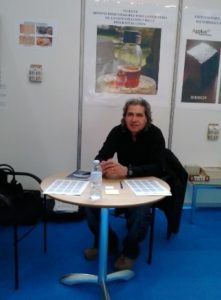
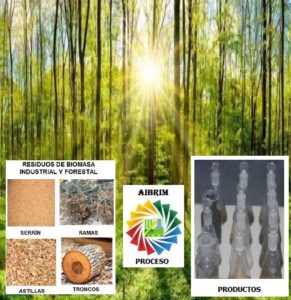
Biography: Juan Carlos Torres is an Engineer in Automatic Control of Industrial Processes, Engineer in Automation and Industrial Electronics, Doctor in Industrial Engineering and Project Designer for Renewable Energy Installations. He has developed his research career as a specialist in the design, construction and commissioning of facility prototypes for the study of industrial processes and obtaining patents for new products for the industry. He currently directs and finances with his own capital research on the use of biomass residues from the agricultural, forestry and wood industries to obtain new renewable and sustainable materials for the industry. In 2016, he patented a biodegradable additive obtained from biomass residues, which has its application in the construction and bioconstruction industry.
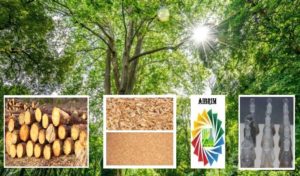
Estos son nuestros logros:
1) Diseño de un planta piloto experimental para procesar la biomasa.
2) Tecnología para producir un aditivo ecológico a partir de biomasa.
3) Patente de un aditivo ecológico para la industria de la construcción.
4) Tecnología para fabricar nuevos materiales de construcción.
5) Nuevos materiales ligeros, ignífugos, aislantes térmicos y acústicos.
6) Proyecto de una planta piloto industrial para producir el aditivo.
El nuevo aditivo puede ser una alternativa de negocio y de creación de empleo para:
– Empresas que fabrican materiales para la industria de la construcción.
– Empresas que generan residuos de biomasa.
– Empresas que deseen cambiar de actividad.
– Empresas de nueva creación.
Las empresas solas o en grupo podrían establecer varias líneas de negocio:
1) Producir y comercializar el aditivo ecológico.
2) Producir y comercializar el aditivo ecológico y los materiales ligeros, ignífugos, aislantes térmicos y acústicos.
3) Comercializar la tecnología, realizando el diseño y la construcción de plantas para producir el aditivo ecológico.
AIBRIM BUSCA EMPRESAS INTERESADAS EN ESTA OPORTUNIDAD DE NEGOCIO, CON EL OBJETIVO DE ESTABLECER UNA COLABORACIÓN POSITIVA, DONDE TODAS LAS PARTES INVOLUCRADAS SE BENEFICIARÁN DE LOS RESULTADOS OBTENIDOS
Para más información contactar con:
Dr. Juan Carlos Torres
info@aibrim.com
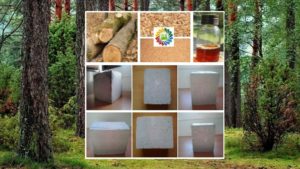
These are our achievements:
1) Design of an experimental pilot plant to process biomass.
2) Technology to produce an ecological additive from biomass.
3) Patent of an ecological additive for the construction industry.
4) Technology to manufacture new building materials.
5) New lightweight, flame retardant, thermal and acoustic insulating materials.
6) Project of an industrial pilot plant to produce the additive.
The new additive can be a business and job creation alternative for:
– Companies that manufacture materials for the construction industry.
– Companies that generate biomass waste.
– Companies that wish to change their activity.
– Newly created companies.
Single or group companies could establish several lines of business:
1) Produce and market the ecological additive.
2) Produce and market the ecological additive and the light, fireproof, thermal and acoustic insulators.
3) Commercialize the technology, carrying out the design and construction of plants to produce the ecological additive.
AIBRIM IS LOOKING FOR COMPANIES INTERESTED IN THIS BUSINESS OPPORTUNITY, WITH THE OBJECTIVE OF ESTABLISHING A POSITIVE COLLABORATION, WHERE ALL PARTIES INVOLVED WILL BENEFIT FROM THE RESULTS OBTAINED
For more information, contact:
Dr. Juan Carlos Torres
info@aibrim.com
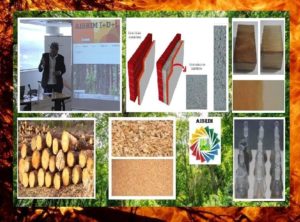
La plataforma tecnológica AIBRIM basa su investigación en los conceptos siguientes:
Producto forestal: Es la materia vegetal del monte, entendido como tal, todo terreno en el que vegetan especies forestales arbóreas, arbustivas, de matorral o herbáceas, sea espontáneamente o procedan de siembra o plantación, que cumplan o puedan cumplir funciones ambientales, protectoras y productoras. A estos efectos, se consideran, principalmente, productos forestales: las maderas y materias primas obtenidas de ellas como la pulpa y la celulosa; savias y resinas; cortezas; hojas y semillas.
Química sostenible: Hace referencia a los esfuerzos de los investigadores en el campo de la química y de la ingeniería química para desarrollar nuevos procesos y nuevos productos para la industria, evitando la contaminación y protegiendo el medio ambiente.
Bioeconomía: Es el conjunto de las actividades económicas de las que se puede obtener productos y servicios, generando valor económico, utilizando de manera ecoeficiente y sostenible los recursos de origen biológico.
Innovación: Es la introducción de una nueva tecnología o de un nuevo producto que den lugar a la fabricación de nuevos materiales ecológicos y sostenibles para la industria, con lo cual se fomenta la bioeconomía circular y se protege el medio ambiente.
Situación actual: BIOECONOMIA CIRCULAR.
En todo el mundo se está apostando por una economía sostenible y eficiente en el uso de los recursos con el objetivo es lograr una economía con bajas emisiones de carbono y más innovadora, que reconcilie las demandas de la industria con recursos biológicos renovables, asegurando así la biodiversidad y la protección medioambiental.
Consideramos a la bioeconomía cómo la ciencia de la gestión de la sustentabilidad y su finalidad es alcanzar un desarrollo socioeconómico sostenible a partir de una utilización eficiente de los recursos naturales. La bioeconomía es un elemento clave en la estrategia para el crecimiento inteligente y ecológico de los países, así como la innovación al servicio del crecimiento sostenible para hacer frente a los retos socioeconómicos vigentes: gestión sostenible de los recursos naturales, reducir la dependencia de los recursos que no son renovables y acelerar la transición a la era postpetróleo, de esta forma fomentamos la economía circular y el uso de materias primas renovables.
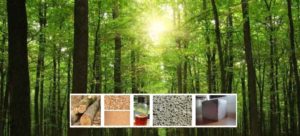
The AIBRIM technology platform bases its research on the following concepts:
Forest Product: The forest plant material, understood as such, is any land in which tree, shrub, shrub or herbaceous forest species vegetate, either spontaneously or from sowing or planting, that fulfill or can fulfill environmental, protective and protective functions. producers. For these purposes, forest products are mainly considered: wood and raw materials obtained from them such as pulp and cellulose; sap and resins; barks; leaves and seeds.
Sustainable chemistry: Refers to the efforts of researchers in the field of chemistry and chemical engineering to develop new processes and new products for the industry, avoiding pollution and protecting the environment.
Bioeconomy: It is the set of economic activities from which products and services can be obtained, generating economic value, using eco-efficient and sustainable resources of biological origin.
Innovation: It is the introduction of a new technology or a new product that leads to the manufacture of new ecological and sustainable materials for the industry, which promotes the circular bioeconomy and protects the environment.
Current situation: CIRCULAR BIOECONOMY.
The whole world is betting on a sustainable and efficient economy in the use of resources with the aim of achieving a low carbon economy and more innovative, which reconciles the demands of the industry with resources renewable technologies, thus ensuring biodiversity and environmental protection.
We consider the bioeconomy how the science of sustainability management and its purpose is to achieve sustainable socioeconomic development based on the efficient use of natural resources. The bioeconomy is a key element in the strategy for the intelligent and ecological growth of the countries, as well as innovation at the service of sustainable growth to face the current socio-economic challenges: sustainable management of natural resources, reduce dependence on resources that are not renewable and accelerate the transition to the post-oil era, in this way we promote the circular economy and the use of renewable raw materials.
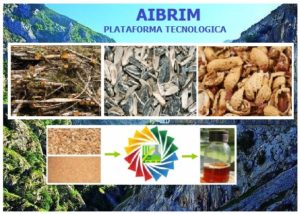
#aibrim
 8488total visits.
8488total visits.